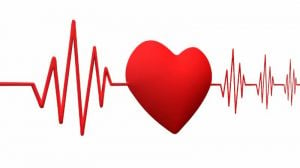What is Atrial Fibrillation?
Atrial Fibrillation, also known as AFib or AF, affects more than 2.6 million adults in the United States. With AFib, the heart beats irregularly and too quickly. AFib occurs when the heart’s electrical signals, which coordinate beating between the four chambers of the heart, become disorganized. As a result, the top two chambers beat irregularly. Symptoms of AFib include: heart palpitations, racing heartbeat, shortness of breath, chest pain, dizziness, fluttering in the chest, weakness, faintness, and sweating. AFib can result in serious medical complications, including stroke, heart failure, chronic fatigue, inconsistent blood supply, and additional heart irregularity problems.
Treatment Options
There are multiple treatment options for patients with AFib to continue to live happy and productive lives. The most common form of treatment is medication. Patients with AFib typically take blood thinners to reduce their risk of clots and stroke. These blood thinners generally fall into one of two categories: Anticoagulants such as warfarin, and antiplatelets, such as aspirin (in rarer cases). These medications can increase the risk of bleeding, and warfarin requires a monthly blood test to ensure proper dosage. However, when used properly, these medications can reduce the risk of clots in patients with AFib.
In addition to blood thinners, patients with AFib also may take medications to help control heart rate and heart rhythm. Beta blockers are a form of medication designed to slow the beating of the heart. For patients with AFib, a slower heart beat can make them feel and function better. Calcium channel blockers are another medication which both slow the heart rate as well as reduce the strength of the heart’s muscle contractions, resulting in less severe AFib symptoms. However, since AFib is an issue not only of a fast beating heart, but an irregularly beating heart, many patients take medications to control heart rhythm. Potassium channel blockers and sodium channel blockers both work to slow down the heart’s electrical signals, which allows for a more regular heartbeat.
When Medication is Not Enough
For some patients, medication alone may not be enough. Several nonsurgical procedures have been known to effectively treat AFib. The most common of these procedures is an electric cardioversion. In this procedure, a patient, under mild anesthesia, receives an electrical shock on the chest which can be used to “reset” the heart’s normal rhythm, not unlike a defibrillator but with a milder shock. Another procedure which may treat AFib is ablation. In ablation, a physician inserts a small, flexible catheter into the patient’s blood vessels and carefully destroys the malfunctioning tissue, which may return the heart to its normal rhythm. Some patients require surgery to treat their AFib. Pacemakers – small devices implanted near the collar bone with wires connecting them to the heart – regulate heartbeats with electrical impulses and restore the heart to its proper rhythm. A more complicated procedure, open-heart maze surgery, involves a surgeon creating scar tissue on the heart to block disruptive electrical signals, restoring the heart to its normal rhythm.
Living with AFib
Treatments for AFib can help reduce risk of clotting, stroke, and heart failure. Over 2.6 million Americans suffer from AFib, and with the right treatments they can live healthy, productive lives. If you have AFib, or if you may be at risk for AFib, talk to your doctor to ensure you’re doing everything you can to reduce your risk of clotting and stroke.

Written by Reed Karsh, University of Pittsburgh Intern and Special Contributor to NBCA’s Women & Blood Clots Program and NBCA’s e-Newsletter.





